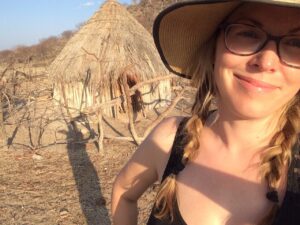2018 ISIR Prize for Best Paper
Biosketch: Helen Elizabeth Davis
Helen grew up in the borderlands of southern New Mexico where she enjoyed a free-range childhood hunting for ladybugs in the Sacramento Mountains. She received her B.A. from the University of Missouri in 2003. Before attending graduate school, Helen began working for the Tsimane Health and Life History Project in lowland Bolivia. She received her M.Sc. and Ph.D. from the University of New Mexico, where she focused on the effects of formal schooling on cognitive performance among foraging and transitioning populations. She held a postdoctoral fellowship with the Spatial Cognition and Navigation (SCAN) Project at the University of Utah for two years before joining the Culture, Cognition and Coevolution Lab in the Department of Human Evolutionary Biology at Harvard University. Helen’s research continues to investigate how access to resources and environmental variation affects cognitive performance in children, particularly within foraging and transitioning populations. She continues to work with the Tsimane of Bolivia, and she has begun working with Twa & HImba people along the Namibian-Angolan border.
https://coevolution.fas.harvard.edu
Representative Publications:
Gurven, M., Stieglitz, J., Trumble, B., Davis, H., Kaplan, H. (2017) Cognitive performance across the life course of Bolivian forager-farmers with limited schooling. Developmental Psychology. 53(1): 160-176.
Davis, H., Stieglitz, J., Kaplan, H, and Gurven, M. Predictors of children’s cognitive performance: a longitudinal study of forager-horticulturalists with variable access to schooling (submitted).
Davis, H. & Cashdan, C. Spatial cognitive ability and mobility among children in a forager -horticulturalist population, the Tsimane of Bolivia (under review) Culture and Cognition.


